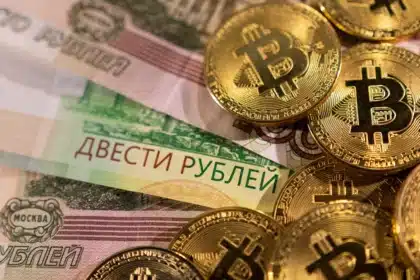India, the world’s largest democracy with over 1.3 billion people is at the forefront of the development of cryptocurrencies but facing challenges in Stablecoin regulations. The latest cross-geographical study, the “2024 Global Adoption Index,” made by blockchain analytics company Chainalysis, revealed that India is now the world leader in terms of crypto adoption. However, the academicians stressed rating acceptance to unlock the country’s crypto potential fully.
Why India Leads the Pack in Crypto Adoption
This rapid adoption of cryptocurrencies in India is attributed to India’s peculiar demography and economic environment. According to Chainalysis, India tops the list as having the highest adjusted throughput for cryptocurrencies annually. TRM Labs, a blockchain risk management firm has this backed by pointing out that India has a strong digital environment appropriate for growth.
“India has a massive population that remains unserved by conventional banking systems, but mobile connections delivering cryptocurrency services are widely available across the country,” Ang added. Various reports from the World Bank show that about 190 million people in India do not have access to banking facilities to support and enhance the need for Fintech solutions.

Besides, it has a large and young population which could work as its advantage. India has emerged as a hotbed for Web3 innovation, thanks to its abundance of Web3 developers in the world. Rish Kumar, the Head of Growth at KILT Protocol mentioned, “India has early adoption concerning technology, and many young people engage in DeFi, trading in cryptocurrencies, and even in the development of blockchains.”
Even the forecast of financial flows in the further development of India’s cryptocurrency market testifies to its potential. According to Statista, revenue from the country’s crypto market will be about 6.6 billion USD by the end of 2024.
Stablecoin Adoption: A Missed Opportunity for India?
Even in a country that is amongst the leaders in terms of Crypto adoption, stablecoin acceptance is still limited in India. Tethered to fiat, stablecoins are widely regarded as an essential component of currency exchange and short-distance commerce in the developing world.
With an annual remittance of more than $150 billion, India can be enhanced by using stablecoins as Kevin Lehtiniitty, CEO at Borderless.xyz. “Every stablecoin used would cause consumption of the on-chain wallet thereby increasing general utilisation of cryptocurrency,” he said.

Nevertheless, India’s stringent governing frameworks act as a barrier when it comes to stablecoin development. The crypto wing of the Reserve Bank of India had previously called for a total ban on stablecoins due to financial stability risks. On the other hand, the ongoing regulation by SEBI shows a probable multiagent access to the restrictive than the present restrictions as far as they proposed.
Small businesses, which are an essential part of the Indian economy, shall benefit the most. As Luca Prosperi, the CE of M^0, said, “Small entrepreneurs can lower expenses and sidestep exchange rate risk through stablecoins to engage in international markets.”
Regulatory Landscape: An Obstacle or an Opportunity?
India has one of the most complex regulatory regimes that the cryptocurrency sector has to face. A flat 30% tax on crypto profits, along with 1% tax deducted at source (TDS) on trades has scared a lot of customers.
Furthermore, the RBI has released the Digital Rupee as its CBDC as some opponents consider it to be a rival of private stablecoins. Nonetheless, according to Prosperi there is an opportunity for synergy. “Stablecoins and the Digital Rupee could exist side by side as the world gets a taste of two solutions to the process of modernization,” he said.
Both domestic and foreign investors are very keen on observing India’s regulatory changes. The US based cryptocurrency custody firm, BitGo has filled the required know your customer (KYC) form in order to enter the billion dollar market of India through negotiations with FIU. Chen Fang, the COO of the company, noted active talks during the recent India Blockchain Week indicating the global focus on the Indian crypto market.
Conclusion of India’s Crypto Adoption and Stablecoin Challenges
For this reason, India has the ability to determine the future of Digital Finance, especially given the fact that it holds the enviable position as the leading country in the world with respect to the adoption of cryptocurrency. As the use of cryptos continues to ramp up, new-generation developers and institutional investment are making it possible for India to continue to be on the cutting edge of the cryptocurrency evolution. However, stablecoin acceptance and regulatory clarity are going to be important for future growth in these market segments.
Achieving this will require collective endeavour by policy makers, industry players and users in addressing the tension between innovation and sound financial practices. Keep following The Bit Journal for latest crypto updates and developments.
Follow us on Twitter and LinkedIn and join our Telegram channel to be instantly informed about breaking news!






























